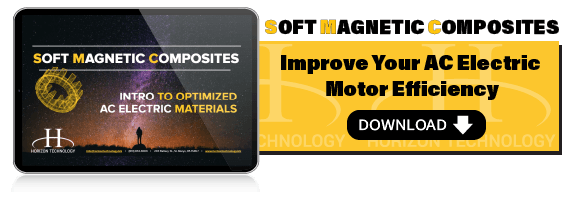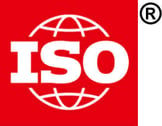Powder Metallurgy (PM) has established itself as a leading-edge parts manufacturing process - enabling new designs with simplified production while simultaneously offering cost effectiveness and reduced carbon emissions. What started out offering self-lubricating bearings has evolved into a process capable of meeting the most stringent mechanical property demands for automotive, lawn and garden, HVAC, power tools... This high performance evolution at Horizon Technology is a synergy of unique powders coupled with advancements in both compaction and sintering technologies to create 3 pillars of powder metallurgy.
.jpg?width=1920&height=1080&name=Untitled%20design%20(5).jpg)
Historically, the automotive industry has been the dominant user of powder metal parts production for high performance engine and transmission applications. However, the automotive industry is undergoing a propulsion revolution: 8-cylinder engines are being replaced by 6-cylinder engines and in some cases even turbo-charged 4-cylinder engines with no loss in performance but significant reductions in carbon emissions. Ultimately, consumer preference will reduce the dependence on the internal combustion engine, in favor of electric or hybrid vehicles.
Powder Metal (PM) is not static in the face of these new opportunities. The creative spirit of PM is alive and well, most notably with the advancements of soft magnetic composites (SMCs) which facilitate new and more efficient motor designs. Additionally, advances in materials, compaction and sintering creating strength levels in structural components typically associated with wrought steel and Sintered Soft Magnetic properties that can be tailored to your needs.
As the evolution to totally electric powertrains progress, the need for greater electrification of auxiliary automotive devices becomes paramount. For example, air conditioning, vacuum assisted power brakes, and power steering are currently driven by the internal combustion engine either directly or via the serpentine belt. Electric vehicles eliminate that source of power and now these necessities need to be powered by some type of electric motor. Even in hybrid cars the need for better fuel efficiency will necessitate a reduction in engine size and greater reliance on battery power for auxiliary systems. To maintain performance and efficiency, imagine these smaller engines equipped with an electrically driven turbo charger providing instantaneous boost without the power robbing and noise associated with super charging.
Beyond the automotive sector, advanced powder metallurgy with its higher strength and greater fatigue performance offer advantages in the power tool, lawn and garden, speed reducers and stationary hydraulic devices and many other industries. The advantages of PM are lighter weights, greater part-to-part consistency, and an often over looked advantage – reduced noise during operation. Again, all with the opportunity for reduced cost and simplification of the supply chain.
If we think about the future of SMCs beyond the auto market, many of the new motor designs offer the promise of reduced energy consumption. Although the energy savings may seem small; however, over the lifetime of that device such as a refrigerator running continuously and the inevitable rising cost of electric power, these relatively small savings are significant.
The lessons learned for producing unique shapes and the creative capability of the PM process offer the opportunity to produce more efficient motors via the SMC technology. Couple this with the advanced press and sintered components, the potential of new designs and design flexibility can open new vistas for your manufacturing problems either current or yet to be experienced.
Can the marriage of new electric motors utilizing SMCs and advanced press and sintered PM open new design freedom?
Contact us today!



